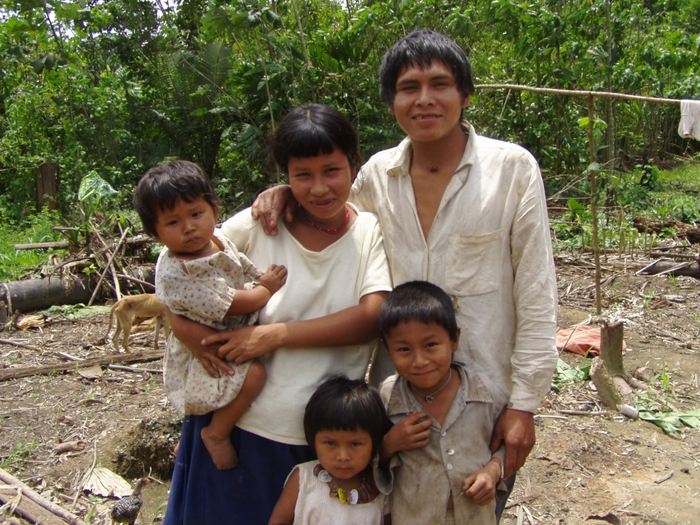A team of global experts has discovered new signals of natural selection in humans.

Credit: Michael Gurven
A team of global experts has discovered new signals of natural selection in humans.
Led by UC Santa Barbara Tsimane Health and Life History Project co-director Michael Gurven, the team studied two populations living in the Bolivian Amazon rainforest — the Tsimane and the Moseten. Previous studies show that these tropical populations are exposed to many parasites and a variety of pathogens; at the same time, the Tsimane rarely suffer from cardiovascular diseases and dementia. This new research suggests that the Tsimane genome has undergone selection for traits associated with immunity and metabolism.
The work adds context on the evolution and specialization of humans around the world, moving beyond a few well-known cases. For example, descendants of Europeans, some Africans, and those of the Middle East can digest lactose into adulthood, which maintains their ability to drink milk past puberty in these populations. The study is published in the Proceedings of the National Academy of Sciences.
According to lead author and Vanderbilt University professor Amanda Lea, “despite the great interest in understanding DNA variants that differ adaptively between populations, it is still difficult to identify and characterize these variants. However, the work is important because we can discover parts of the genome that vary and are important from both evolutionary and biomedical perspectives.”
An especially unique part of this research is its origins: a collaboration between the Tsimane Health and Life History Project, and the Tsimane and Moseten communities. For 20 years, the project has included joint work between anthropologists, doctors, Indigenous leaders, community members and local institutions to build a picture of their health and to improve it. Such trusted partnerships are vital to navigating the ethical landscape around studying DNA in Indigenous populations. In fact, the team has developed a new system for sharing data, one that balances the goals of open science with the need for fairness, equity and Indigenous data sovereignty. It’s a way forward for Western science in its efforts to address issues such as lack of diversity in human genome work, and the historical reticence and mistrust many Indigenous populations have with participating in genetic and biomedical studies.
“Most of the research connecting DNA mutations to health has been in European or North American populations,” Gurven said of the importance of working with the aborigines of lowland South America. “Groups like the Tsimane have a different history living in a different environment. It is logical that genetic variants unique to the Tsimane do not exist in the most frequently studied populations. Exploring the unique variants and their relationship to health consequences is something we are doing and we are very happy about that.”
Using a variety of techniques, they found 21 regions in the genome that swept through the Tsimane population, including key players that affect immune defenses against micro- and macro-organisms, and how fats are metabolized by our cells. They found that immunity-related traits were affected by selection occuring at multiple genetic regions simultaneously (called polygenic selection). They also showed that many genes expressed in blood were related to immune function, and that regulatory genes affected levels of white blood cell counts, blood cholesterol and blood sugar.
One of the surprising results for the researchers was to find , there seems to be a beneficial variants that affect the way in which the Tsimane use energy. Previous research suggested that deleterious alleles in U.S. or European populations, including Apolipoprotein-E4 that increases the risk for Alzheimer’s disease, have a muted, or even a positive effect in an environment with many infectious agents and limited energy such as where the Tsimane live. Studying genetic variants that affect immunity, infection risk and cardiometabolic health can greatly advance our understanding of why harmful alleles still exist today.
This project was carried out with the Tsimane, one of more than 35 Indigenous groups in Bolivia. The Tsimane population includes approximately 17,000 people in 90 villages. Blood samples were collected from more than 1,000 people between 2006 and 2015 by the Tsimane Health and Life History Project. DNA and information on single nucleotide polymorphisms were gathered from the blood samples, and the team identified areas of the genome that underwent positive selection. The researchers used statistical programs and online databases to identify correlations in genetic areas related to immunity. The group also investigated relationships between genotypes (genes) and phenotypes (how those genes are expressed). In the future, the team plans to explore other ways in which Tsimane genes may differ from those of other populations, such as Europeans. It will also build a rich reference of the Tsimane people using other biomedical techniques, including transcriptomics, metabolomics and microbiome, to connect genetics with health.
Journal
Proceedings of the National Academy of Sciences




